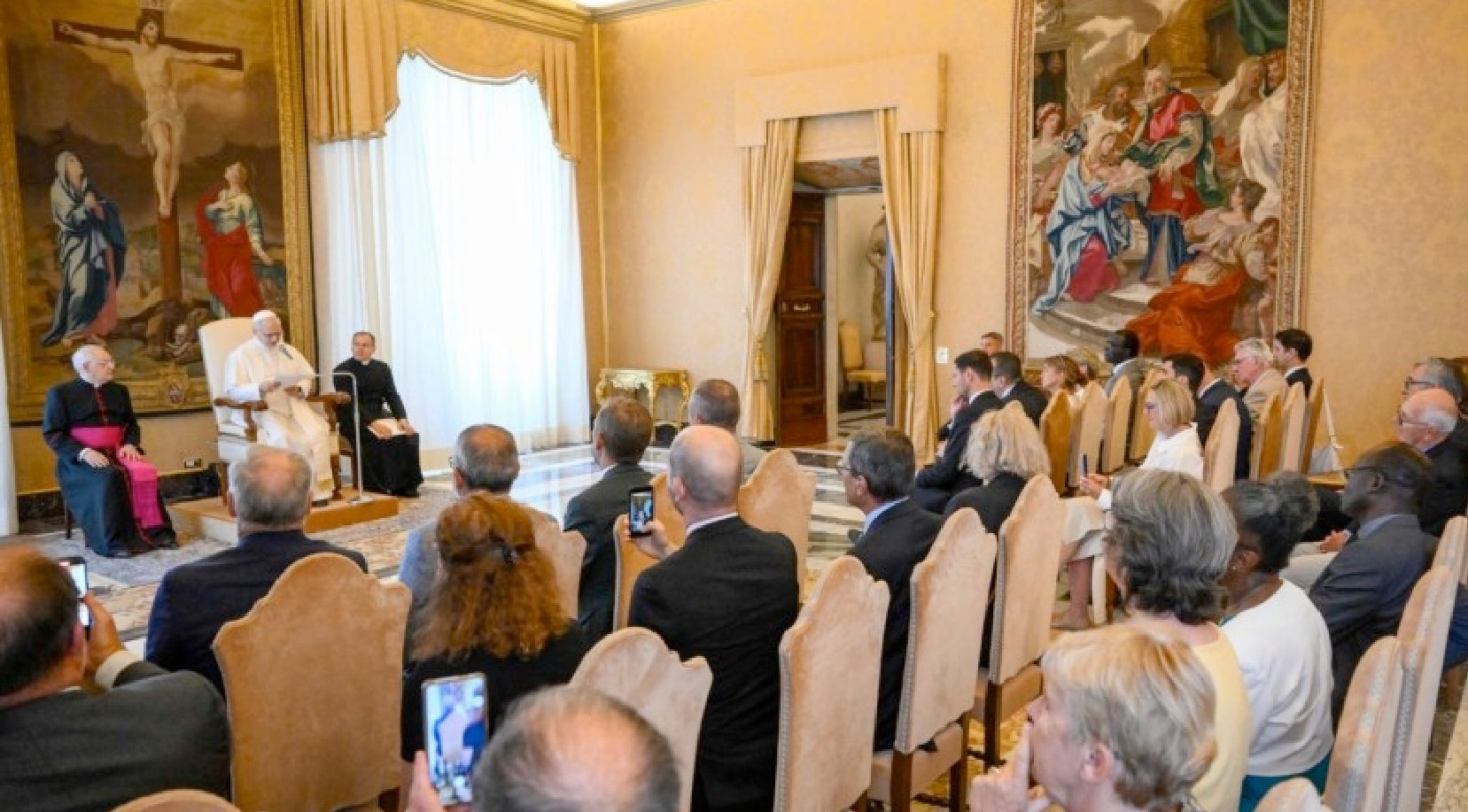(ZENIT News / Vatican City, 29.08.2025) – On Thursday morning, August 28, Pope Leo XIV received in audience, in the Hall of the Consistory, some 40 French elected officials of various political parties from the Marne Valley. The Holy Father’s speech addressed topics such as misunderstood laicism, coherence with one’s professed faith, and offered advice for the spiritual life of a politician.
Below is the full English translation of the Pontiff’s address by ZENIT.
* * *
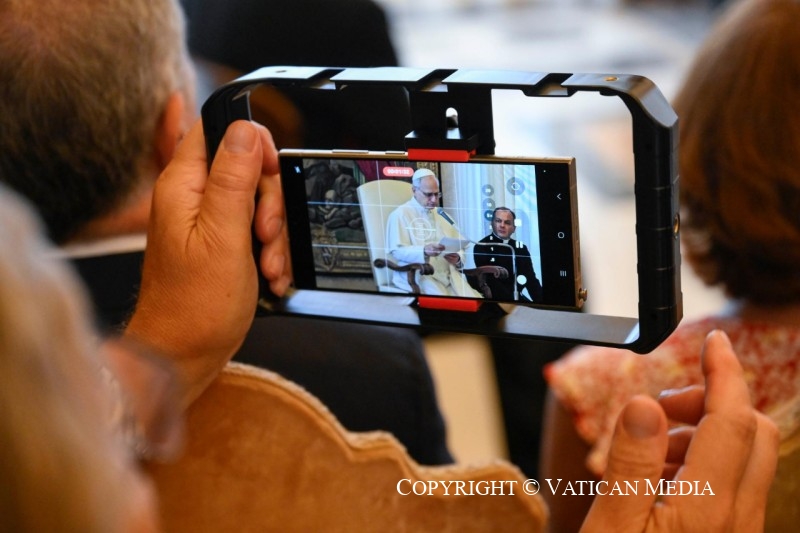
I cordially greet Your Excellency Monsignor Dominique Blanchet, and I welcome all of you, elected officials and civil figures of the Diocese of Créteil, on pilgrimage to Rome.
I am pleased to welcome you on your journey of faith: return to your daily commitments strengthened in hope, more determined to work toward building a more just, more human, more fraternal world, which cannot be anything other than a world more imbued with the Gospel. Faced with the aberrations of all kinds that our Western societies are experiencing, we can do nothing better, as Christians, than turn to Christ and ask for His help in the exercise of our responsibilities.
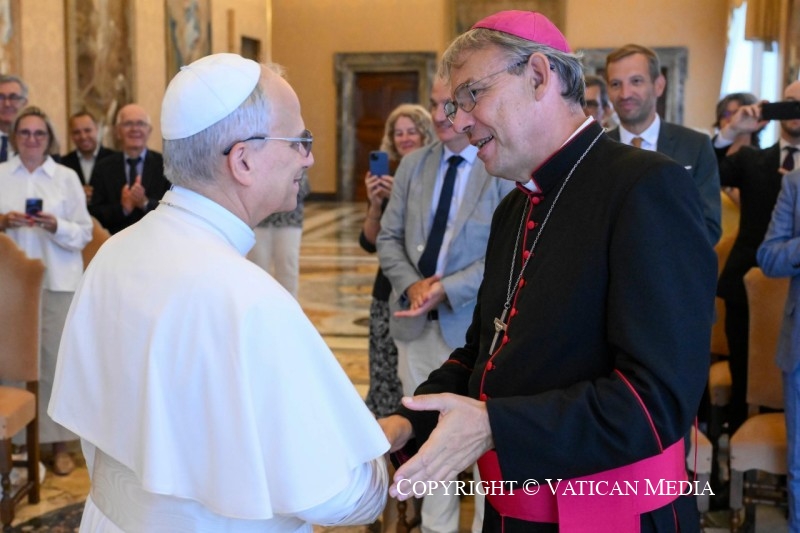
For this reason, your path, more than simply personal enrichment, is of great importance and great benefit to the men and women you serve. And it is even more praiseworthy, since it isn’t easy in France for an elected politician, due to a sometimes misunderstood laicism, to act and decide in coherence with one’s faith in the exercise of public responsibilities.
The salvation that Jesus obtained with His Death and Resurrection encompasses all dimensions of human life, such as culture, the economy and work, family and marriage, respect for human dignity and life, health, as well as communication, education, and politics. Christianity cannot be reduced to a simple private devotion, because it implies a way of living in society inspired by love for God and for one’s neighbour, who, in Christ, is no longer an enemy, but a brother.
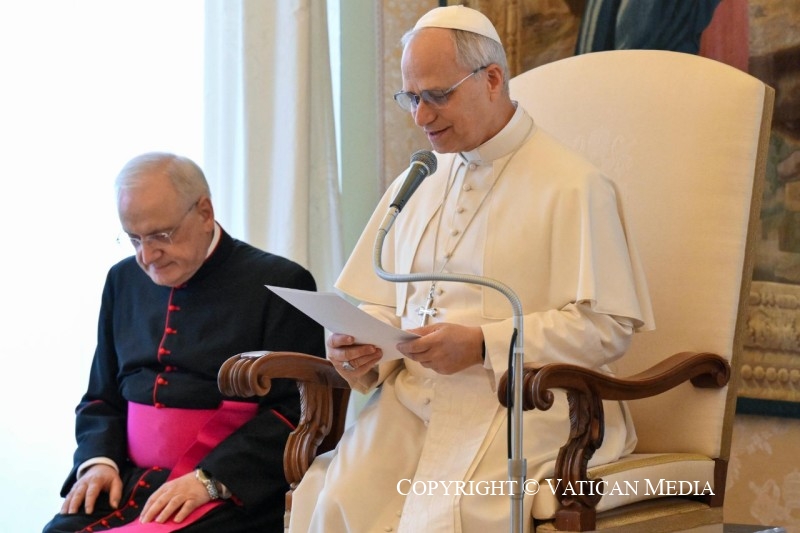
Your region, the place of your commitments, must confront major social issues such as violence in some neighbourhoods, insecurity, precariousness, drug networks, unemployment, the disappearance of community . . . To face these issues, the responsible Christian relies on the virtue of charity that has dwelled within him since his Baptism. This is a gift from God, a «force capable of awakening new ways of confronting the problems of today’s world and of profoundly renewing from within structures, social organizations, and legal systems. From this perspective, charity becomes social and political charity: social charity makes us love the common good and effectively seek the good of all people» (Compendium of the Social Doctrine of the Church, no. 207). Therefore, the responsible Christian is better prepared to face the challenges of today’s world, naturally to the extent that it illuminates them and gives them that strength. Jesus forcefully affirms this: «without Me you can do nothing» (John 15:5); therefore, it is not surprising that the promotion of «values» — no matter how evangelical they may be — but «empty» of Christ, who is their author, is incapable of changing the world.
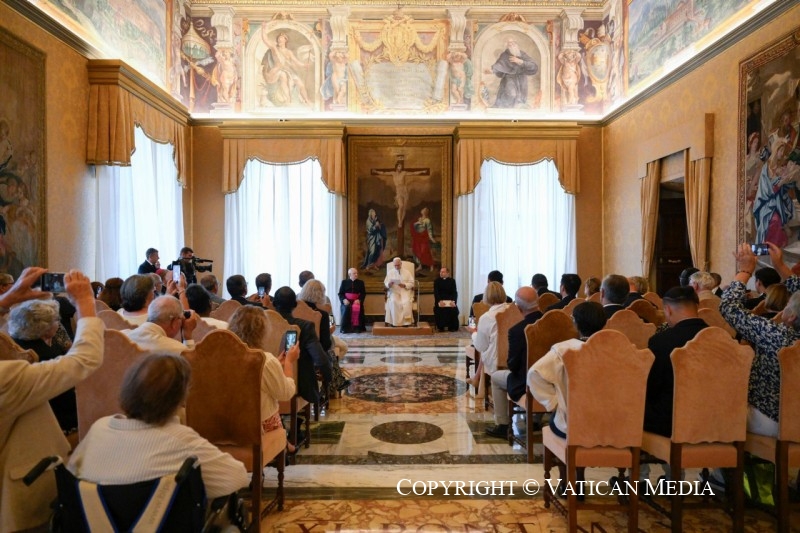
So, Monsignor Blanchet asked me to give you some advice. The first — and the only one I would give you –, is to unite yourselves ever more closely to Jesus, to live by Him, and to bear witness to Him. There is no separation in the personality of a political figure: there is not the politician on one side and the Christian on the other. There is the politician who, under the gaze of God and his conscience, lives his commitments and responsibilities in a Christian way.
Therefore, you are called to be strengthened in the faith, to deepen your understanding of the doctrine — particularly the Social Doctrine [of the Church] — that Jesus taught the world, and to put it into practice in the exercise of your functions and in the drafting of laws. Its foundations are substantially in harmony with human nature, with the Natural Law that everyone can understand, even non-Christians, even non-believers. Hence, there is no need to fear proposing and defending it with conviction: it is a doctrine of salvation that seeks the good of every human being, the building of peaceful, harmonious, prosperous, and reconciled societies.
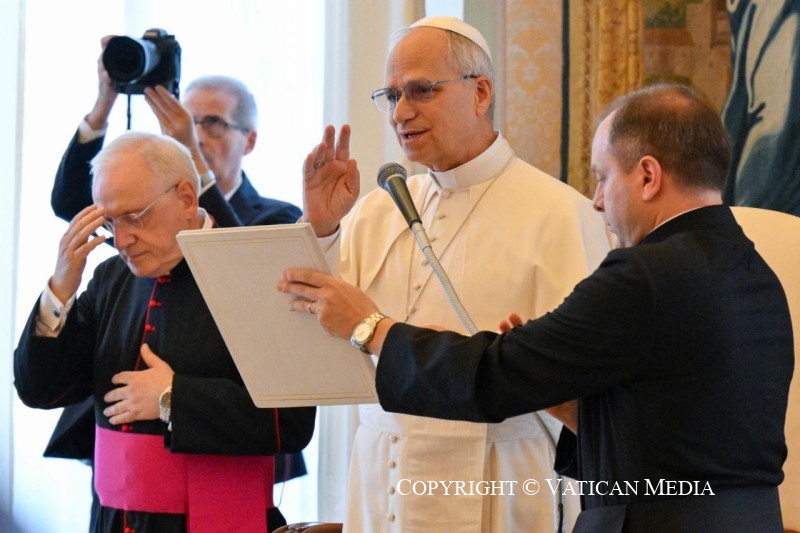
I am well aware that the openly Christian commitment of a political leader is not easy, especially in certain Western societies where Christ and His Church are marginalized, often ignored, and sometimes ridiculed. Nor am I unaware of the pressures, the partisan directives, the «ideological colonizations» — to borrow a felicitous expression from Pope Francis — to which politicians are subjected. You must have courage: the courage to sometimes say «no, I cannot,» when the truth is at stake. Here too, only union with Jesus — Jesus crucified! — will give you the courage to suffer in His name. He said to His disciples: «In the world you will have tribulation; but be of good cheer, I have overcome the world» (John 16:33).
Dear friends, I thank you for your visit and assure you of my most sincere encouragement for the continuation of your activities in the service of your fellow citizens. Maintain the hope for a better world; remain certain that, united to Christ, your efforts will bear fruit and will be rewarded. I entrust you and your country to the protection of Our Lady of the Assumption, and I cordially impart the Apostolic Blessing.
Translation of the Italian original into Spanish by ZENIT’s Editorial Director and, into English, by Virginia M. Forrester
